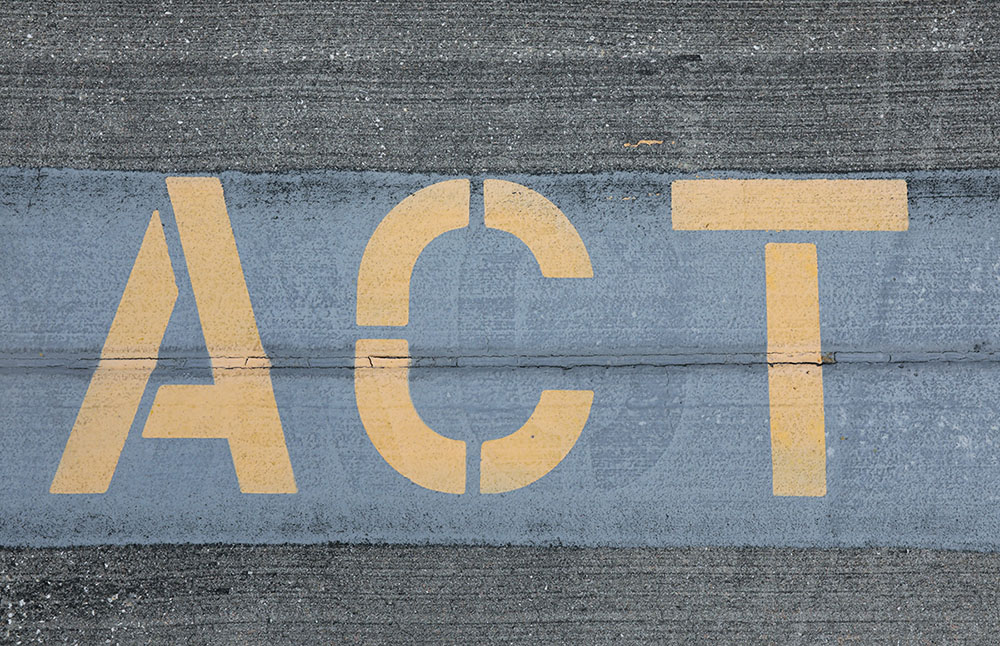
Grappling With College Admissions: Test-Optional Policies And Holistic Reviews
We’re observing that many families are feeling overwhelmed and/or confused by the state of college admissions (e.g. test-optional policies, holistic reviews) and what they should be doing. We’re here to help you make sense of it.
If we had to boil it down to one sentence, we’d say: Do everything within your control from grades 9 to 12 – including standardized test preparation – and cast a wide enough net (12-15 applications).
But unpacking what a holistic review means for your student cannot properly be boiled down to one sentence, and it keeps changing, so here’s quite a lot of information that’s important to carefully consider and digest. Go make an espresso or a cup of tea and settle in!
Common App Research Brief: Application Trends Through November 1, 2023
To better understand the state of college applications, here’s some interesting data recently published by Common App in this research brief dated November 15, 2023. It reveals application trends through November 1, 2023 benchmarked against pre-pandemic norms from the 2019-20 admissions cycle. NOTE: the UC system is NOT part of Common App.
Key Findings:
- 65% increase in total application volume (3,353,516) to 834 institutions that have been part of the Common App membership since 2019-20 (last application season not affected by Covid).
- 41% increase in distinct first-year applicants (836,639) planning to enroll for the 2024-25 academic year.
- About 68% of domestic applicants (565,045) live in ZIP codes with family incomes above the national median; students early to the application cycle are often targeting Early Decision and Early Action programs.
- 34% (421,161) of applicants submitted standardized test scores. However, Common App member institutions requiring standardized testing is just 4% in comparison to 55% in 2019-20.
- Applications to public members grew more than those to private members since 2019-20 (82% vs. 47%). Growth in applications since 2019-20 was slowest for those most selective institutions (admit rates below 25%) and highest for more selective institutions (admit rates between 50% and 74%).
Demographic Trends:
- 67% increase for applicants identifying as an underrepresented minority race/ethnicity (URM) in comparison to the 2019-20 season, driven largely by an 86% increase for applicants identifying as American Indian or Alaska Native, and a 70% increase for applicants identifying as Black or African American.
- 30% increase in applications by non-URM students
- 67% increase for first-generation applicants, about twice the rate of continuing-generation applicants over the same period.
- Increase in applicants from lower-income ZIP codes (52%) was substantially greater than by their peers from higher-income areas (34%).
- Domestically, the ten highest volume states for first-year applicants include: New York (#1 with 50% growth since 2019-20), Florida, Texas, California, Illinois, New Jersey, Pennsylvania, Ohio, North Carolina, and Virginia.
- Domestically, growth in applicants is roughly equal across urbanicity levels, though growth was by far the fastest in the Southwestern regions (109%). Nebraska, Texas, South Carolina, Alabama, and North Dakota were the fastest growing states.
- International applicants increased by more than twice the rate of domestic applicants since the 2019-20 admissions cycle (87% vs. 38%). This growth is fastest among applicants with citizenship in Ghana (1,066%), Bangladesh (514%), Nepal (470%), Ethiopia (369%, and Nigeria (347%).
What does it take to be a “competitive” applicant?
From our perspective, competitive applicants should NOT be giving up any ground. We urge all parents to be more skeptical about the messages they may be hearing from well-intended school faculty, admissions representatives, and the national media about holistic reviews and admissions criteria. The hard truth is that college admissions criteria are more subjective than ever, and families ought to apply control where they can; the opportunities to shine aren’t even across all colleges, and the goal is to keep as many doors open as possible.
When high school seniors ultimately submit applications for college, they have the following ways to differentiate themselves from their peers:
- Academic achievement via grades, class ranking, and GPA
- Academic achievement via standardized testing, including ACT, SAT, APs, and IBs
- Extracurricular activities, including clubs, sports, and volunteer work
- Independent study and/or college coursework
- Awards and accolades
- Internship or part-time job
- Art or music portfolio
- Auditions
- Sports recruitment
- Demonstrated interest of a particular college(s) through ongoing engagement, summer programming, and early application processes
- Successful interviewing with admissions officers, alumni, and/or student representatives
For good reason, institutions are working to ensure they receive more diverse applicants – broadly defined – which has necessitated the disruption of standardized testing as a barrier to entry, but students are now subject to holistic review relative to the context of their circumstances. Not all of the items above are attainable or manageable for every student, especially with the demands of a rigorous and selective high school program, so families have to realistically assess what they’ll be able to bring to the table when it comes time for college admissions.
What is an “Individualized Holistic Review” for admissions?
The College Board published a 28-page document titled “Understanding Holistic Review in Higher Education Admissions”. Optimally, three common characteristics are included:
- Mission alignment, which is focused on advancing the institution’s core educational goals through the admissions process.
- A two-part inquiry for assessing applicants, which considers: a) their likely ability to succeed and thrive at a given institution, AND b) their ability to enhance the educational experience of their peers in and out of the classroom.
- Consideration of multiple, often intersecting, factors – academic, nonacademic, and contextual – that, in combination, uniquely define and reflect accomplishments and potential contributions of each applicant in light of their background and circumstances.
Here’s an example of this language in practice at Stanford.
Stanford: Holistic Admission
At Stanford, we practice holistic admission. This means that each piece in your application is reviewed as part of an integrated and comprehensive whole.
One piece tells us about your background and life experiences, another about your school and your academic achievement. We learn from others about your character and intellectual contributions. In your essays, we learn about your ideas and interests, and what is meaningful to you.
Each year (and in conformance with the law) we aim to enroll a class of diverse backgrounds and experiences, talents, academic interests, and ways of viewing the world.
In a holistic review, we seek to understand how you, as a whole person, would grow, contribute and thrive at Stanford, and how Stanford would, in turn, be changed by you.
Context
Just as no two Stanford students are the same, each applicant to Stanford is unique. This means that as we review each application, we pay careful attention to unique circumstances. We take into account your background, educational pathway, and work and family responsibilities. By focusing on your achievements in context, we evaluate how you have excelled in your school environment and how you have taken advantage of what is available to you in your school and community.
Considering Your Own Circumstances
Therefore, if students are undergoing a holistic review during the application process, families must logically consider their own circumstances:
- At which school is your child enrolled? Which type of school is it (e.g. mainstream, specialized, therapeutic)? Private? Public?
- Which colleges and majors are you most interested in?
- Which class levels has your child opted into (e.g honors, advanced, regular)? Is AP testing available to showcase subject-matter knowledge?
- Can your student manage standardized testing based on their learning profile?
- In which ZIP code does your family reside?
- Who is your child’s direct peer competition?
- What other evidence might differentiate your child (academic and nonacademic)?
To Test or Not To Test?
Depending on your answers to these questions, we would argue that opting out of standardized testing isn’t a good strategy for everyone as part of a holistic review. And proceeding without standardized testing may create friction following an acceptance with regards to accessing certain majors or avoiding certain courses, particularly math. Anecdotally, almost all of our students continue to apply with standardized test scores, and this hasn’t changed since the 2019-20 academic year. As a result, we continue to experience tremendous success with college admissions, and our students continue to secure multiple acceptances to desired schools. Exceeding expectations has always mattered, and it still does.
Especially for families at selective private and public schools, nothing about a holistic review and the current admissions landscape makes things any easier than they were before the pandemic started. Though many school administrators, college counselors, advisors, and college admissions representatives may appear to emphasize and rally around eased admissions criteria with regard to test-optional policies, we worry tremendously that many families are misunderstanding and giving up considerable control in a high stakes process.
School faculty can’t roll out different messages for different students. There has to be a single message (which, ironically, runs counter to the notion of differentiation and individualization). So if an auditorium full of parents from diverse backgrounds are all brought together for a level setting conversation about college admissions and holistic review, it’s not surprising that a school would message that standardized testing isn’t that important anymore. Doing so diminishes short-term stress and frustration among their constituents while aligning with the heavy marketing push from colleges; and college representatives are keen to drive up application numbers and boast more selective acceptance rates.
In order to sufficiently rack up experiences and accomplishments to shine in a climate of “holistic review”, students need help making the most of their entire high school experience both in and out of school. Therefore, this planning should really start in late 8th grade or the beginning of 9th grade in order to avoid a scramble; it’s stressful enough with a solid and actively managed plan in place! In this article, we backmap this planning to 7th grade.
For standardized test preparation, we currently lean heavily in favor of the ACT while monitoring seriously big changes with the newly established digital-only SAT set to roll out in March 2024. We recommend formalizing test preparation with diagnostic work as early as January of 10th grade; and if you’ve passed that point already for your 11th grader, it’s not too late. We have always valued standardized test preparation as a vehicle for auditing prerequisite skills and bolstering college readiness, which is proving more important than ever with diminished academic performance and reported grade inflation as a result of continuous disruptions over the past several years. Notably, the national average for the ACT has plummeted to a 30-year low of 19.5.
Take Action And Make A Plan
Please contact us with your questions and wonders so that we can have a more cogent discussion by phone or by Zoom. We urge each family to put on blinders to those around them and focus discussions on your needs and goals, based on your particular circumstances, with an eye towards your student’s holistic review and application process.
By Brad Hoffman, M.S.Ed. and Board Certified Educational Planner, and Faya Hoffman, M.A. and Board Certified Educational Planner
 Following several years of significant operational disruptions, schools are focused on
Following several years of significant operational disruptions, schools are focused on  Every year, thousands of students arrive to campuses ready to start their first semester of college. And every year, as the weeks pass, a small percentage of those students begin to suspect that they chose the wrong place. If a student’s academic performance is up to standards but they still aren’t satisfied with their college, it may be time to look elsewhere. College is a pivotal time in a student’s life, and students deserve to be happy. If they’re not, they should absolutely consider transferring colleges.
Every year, thousands of students arrive to campuses ready to start their first semester of college. And every year, as the weeks pass, a small percentage of those students begin to suspect that they chose the wrong place. If a student’s academic performance is up to standards but they still aren’t satisfied with their college, it may be time to look elsewhere. College is a pivotal time in a student’s life, and students deserve to be happy. If they’re not, they should absolutely consider transferring colleges. While starting college can be exhilarating for a number of reasons — living away from home, making new friends, studying new subjects — those same factors can make the college transition difficult. As a result, it’s common for students to struggle a bit academically in their first college term. But sometimes, the challenge lasts longer or becomes more extreme, which creates a dilemma: How much struggle is ok, and how much is too much?
While starting college can be exhilarating for a number of reasons — living away from home, making new friends, studying new subjects — those same factors can make the college transition difficult. As a result, it’s common for students to struggle a bit academically in their first college term. But sometimes, the challenge lasts longer or becomes more extreme, which creates a dilemma: How much struggle is ok, and how much is too much? The ACT differs from the SAT in many ways and is becoming more unique as the SAT transitions to digital only in 2023. The ACT has a different format, a different approach to the questions, and a palette of accommodations options. However, in addition to all of these differences, the ACT test also allows a student to calculate a superscore.
The ACT differs from the SAT in many ways and is becoming more unique as the SAT transitions to digital only in 2023. The ACT has a different format, a different approach to the questions, and a palette of accommodations options. However, in addition to all of these differences, the ACT test also allows a student to calculate a superscore.